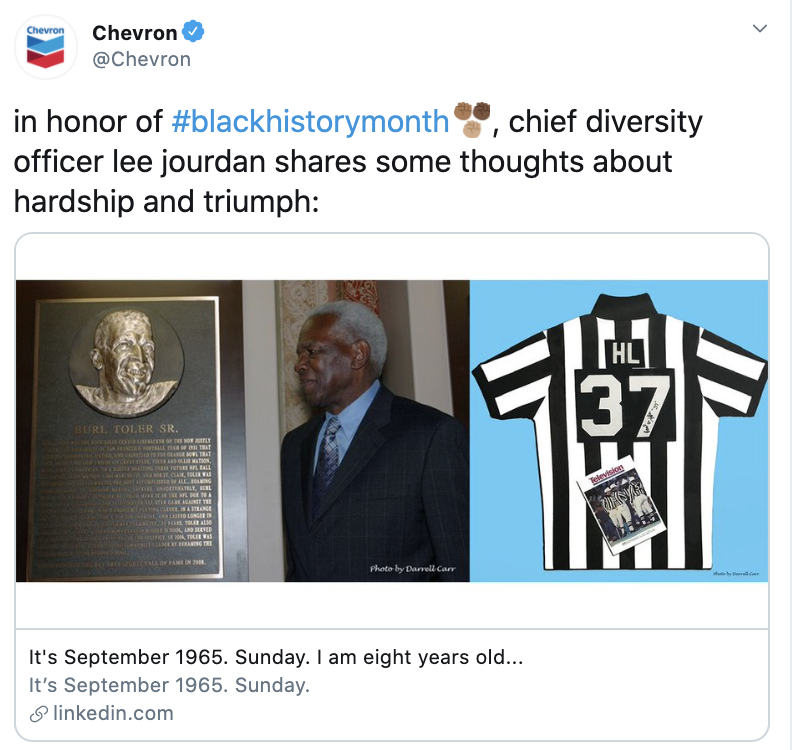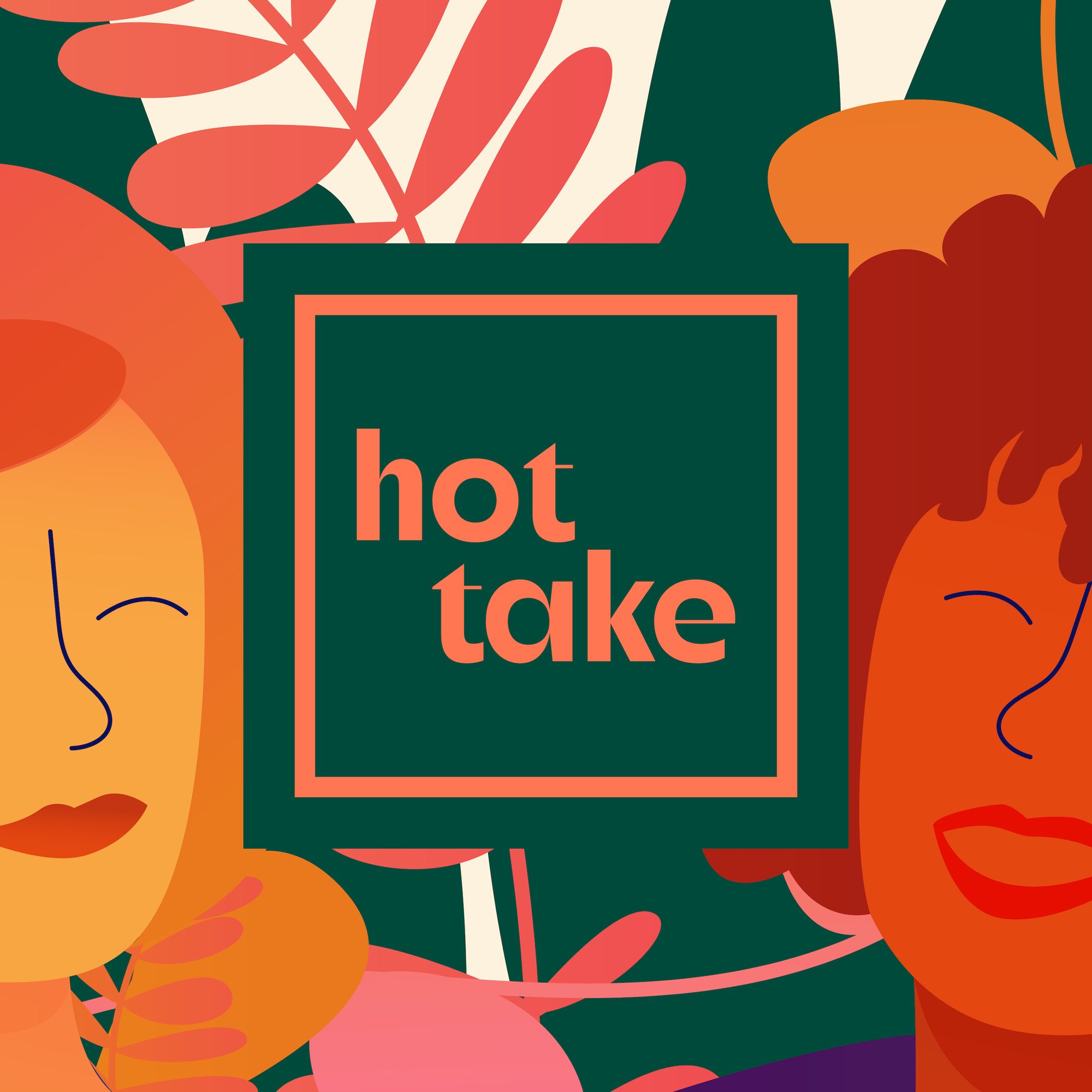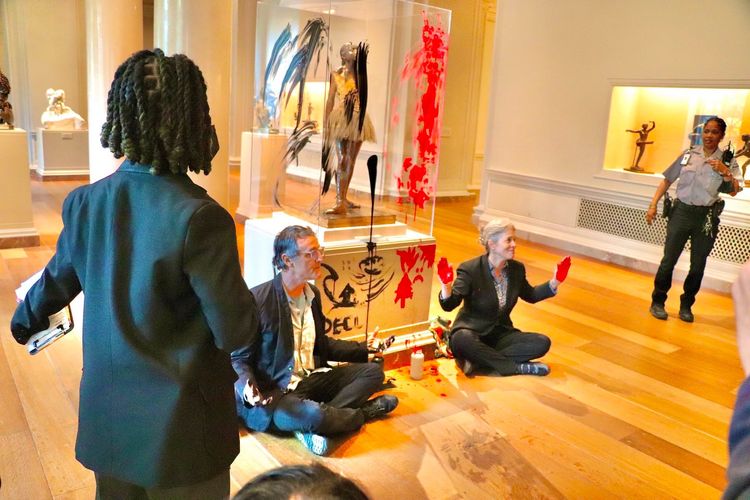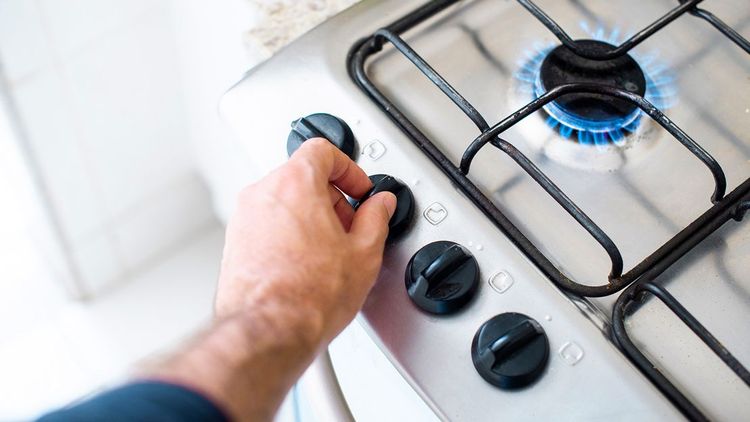Climate Is Not An All Lives Matter Issue

Hey Hot Cakes!
We had some #HotStuff this week that was too good to hold, so we’re sending out a bonus mid-week issue. Below, you’ll find a special scoop from Amy about how Chevron is playing both sides of the game by funding civil rights organizations and police departments. And we’re sharing a preview of Mary’s upcoming essay in HuffPost about how it’s time to stop #AllLivesMatter-ing the climate crisis. Talk to y’all again on Sunday!

Talking Greasy
Big Oil funds both civil rights groups and police, saying "Black Lives Matter" while committing acts of environmental racism all over the world.
At a House committee hearing on fossil fuel deception last year, Congressional reps from oil and gas states repeated a long-used talking point: A clean energy transition is generally a big fuck-you to poor people. They claim that it risks leaving marginalized communities out in the cold and stalls development in Africa. (They love to talk about how dependent African economic growth is on fossil fuels, never about how they've destroyed water sources and wetlands and murdered protesters there). The grossest part: fossil fuel companies also fund various civil rights groups to spread their message for them, all while simultaneously literally choking the life out of Black and brown communities with their refineries and petrochemical plants.
It's an underhanded trick that's almost as old as the industry itself. In fact, some of the same PR firms that helped Big Oil come up with the strategy of framing a transition away from fossil fuels as racist helped Big Tobacco push the idea that a cigarette tax would disproportionately harm Black communities back in the 19xx’s. The tobacco guys even put money into the same civil rights groups to spread that message as the oil companies are funding today.
Earlier this year, civil rights groups the National Urban League and The Rainbow Push Coalition began campaigning for the oil and gas industry to diversify their hiring practices. Not a totally outlandish request, BUT it happens to dovetail with initiatives at most fossil fuel companies to market themselves as "diverse" and therefore good. Oil companies have never been ones to pass up an opportunity to co-opt one thing to hide another.

On Monday, Axios reported that amidst the #BlackLivesMatter protests, these campaigns have "taken on new urgency." There's no evidence provided in the piece that the "new urgency" part is true for anyone but the oil companies that want to plug themselves into the protest movement; it relies on letters that are a month old. We're not entirely sure how Rev. Jesse Jackson went from supporting Bernie "fracking ban" Sanders to pushing for natural gas, but we did find recent donations to the Nationa Urban League from the three oil companies pushing natural gas the hardest: Shell ($1 million+), BP ($250,000+), and Chevron ($50,000+). Plus $25,000+ from the American Petroleum Institute. The National Urban League was also a favorite of tobacco companies in the 1990s.
Ground Game
Paying civil rights orgs to carry water for them, touting their diversity cred while committing various acts of environmental racism, claiming any regulation of their product will adversely harm Black people the most—it's a well-worn strategy for Big Oil. To dig into it a bit more, let's take a look at how it's unfolded in Richmond, CA, home to a massive Chevron refinery.
When you drive into Richmond at night, the Chevron refinery looks almost beautiful. The lights twinkle, white smoke billows out of smokestacks, rising like clouds. The reality, of course, is ugly. Richmond kids are twice as likely to have asthma as kids elsewhere in the country. And Chevron has a history of flouting environmental regulations at its Richmond refinery. In the past five years it's had 149 actions against it from the California Environmental Quality board, with fines totaling just under $2 million. They do not give a fuck. Probably because Richmond is as poor as it is non-white. It's a low-income, majority-Black and brown community, with more than 40 percent of kids under 18 living in poverty.
In 2012, a leaky crude-oil pipeline sparked a fire at the refinery that sent more than 15,000 people, including employees and nearby residents, to the hospital for treatment. In the aftermath of the fire, the state division of Occupational Safety and Health (Cal/OSHA) found the refinery guilty of 11 “willful” violations and fined it about $1 million, the highest fine in the agency’s history. The U.S. Chemical Safety Board’s investigation found that the pipe was recommended for replacement by Chevron inspectors as early as 2002. They let it sit for a decade and then tried to get out of paying for the resulting damage.
Chevron represents about 10 percent of Richmond's total tax base and it frequently tries to get out of paying taxes, too. It also touts its local job numbers often, but only about 10 percent of Chevron employees are even Richmond residents.
The city finally sued Chevron, in 2013, the first lawsuit it had ever brought against the company, for the refinery fire. In 2018 Chevron settled for $5 million, a fraction of what the city wanted. In the meantime, the city also sued Chevron and a couple dozen other oil companies for their role in creating climate change and delaying action on it. That case is still ongoing and my fingers are crossed.
The reason it took the city so long to sue Chevron for its many decades of bad behavior, of course, is that, after a century in this abusive marriage, Richmond is totally financially dependent on Chevron. Between taxes and funding various city services, Chevron represents about a third of the city's annual budget. And when it wanted to expand its refinery, Chevron knew to sweeten the deal with more city funding. In 2008 it agreed to give the city $30 million in exchange for permits to expand the refinery, with $11 million earmarked for … wait for it… the Richmond Police Department.
The Thick Blue Line
Environmental groups sued over the refinery expansion deal and ultimately got Chevron to beef it up to $90 million, the largest community benefits agreement ever signed for an oil refinery project. The increase mostly funds educational opportunities for Richmond residents and environmental remediation, but there's another $2 million in there for the cops. Richmond has about 50 percent more cops than its larger neighboring cities. "It's just a fact that Chevron is a big part of that funding base," former police chief Chris Magnus told The Mercury News in 2014. Today, the company is funneling even more money into the Richmond police department.
It's a department that's had a yo-yo relationship with police brutality for decades and has recently been embroiled in scandal after scandal. In 2019, Richmond detective Kristian Palma shot an unarmed Latino man, Nahum Perez, five times in the back; and then the department got caught lying about it.
All of which makes Chevron’s black square downright ridiculous. They literally fund the police in a majority Black and brown town. Where they don't think twice about making residents sick. And then they turn around and fund civil rights organizations to tell Black people that fossil fuels are good for them. It's so unbelievably cynical it's almost hard to believe, until you remember who you’re dealing with.
No matter how much oil companies try to whitewash, greenwash, pinkwash or blackwash, the reality is this: they are in a business that we know is killing people, both quickly and slowly; it kills Black and brown people first; it poisons the air and water in communities of color with impunity; and it will never stop voluntarily, no matter how diverse Big Oil C-suites get. In other words, they ain’t slick.
It’s Time to Stop #AllLivesMatter-ing the Climate Crisis
As a Climate Person, my social media feeds are awash in calls to pause climate activism for the sake of supporting Black people, as though the two are mutually exclusive. As a Black Climate Person, I can’t tell you how disorienting that is.
Folks, it’s not just time to talk about climate—it’s time to talk about it as the Black issue it is. It’s time to stop whitewashing it. In other words, it’s time to stop #AllLivesMattering climate.
It’s time to talk about how extreme heat exacerbates police violence—and increases deaths from tasers. It’s time to talk about climate gentrification. It’s time to talk about the use of tear gas as environmental racism, especially when tear gas lowers your immune defense during a pandemic that is already disproportionately hurting Black people. And, while we’re at it, it’s time to talk about why Black people are disproportionately hurt by COVID: because we’re far more likely to live near dumping grounds and power plants and large-scale animal farms and food deserts, all of which saddle us with preexisting conditions like asthma, diabetes, and heart conditions. Those are the same preexisting conditions that authorities attempted to blame for the deaths of Eric Garner and George Floyd.
It’s time to talk about what Hurricane Katrina revealed and what I can never, ever unsee: that when disaster strikes, the power structure will either abandon us or turn even more sharply against us. When resources run low, we will have the least and when we try to take what we need, we’ll be labeled looters and shot on sight. It’s time to talk about the white vigilantes who roamed New Orleans after Katrina—and were damn near state-sanctioned—and today’s armed militia groups ready and willing to exploit any disaster—even these protests—to bring about a race war. What do you think they will do in the aftermath of a hurricane or a fire?
It’s time to talk about my biggest fear about the climate crisis. It’s not “how will we treat each other?” It’s “How will white people treat people who look like me?”
If caring about climate change and caring about Black people were mutually exclusive, I never would have gotten into climate justice. I mean, who did y’all think I was fighting for? Black people are my first, true, and—when it comes to it—dying love. I got into climate justice work because I love Black people. Do you?
P.S. How do you organize a space party?
You planet.






Only paid subscribers can comment.
Please subscribe or sign in to join the conversation.